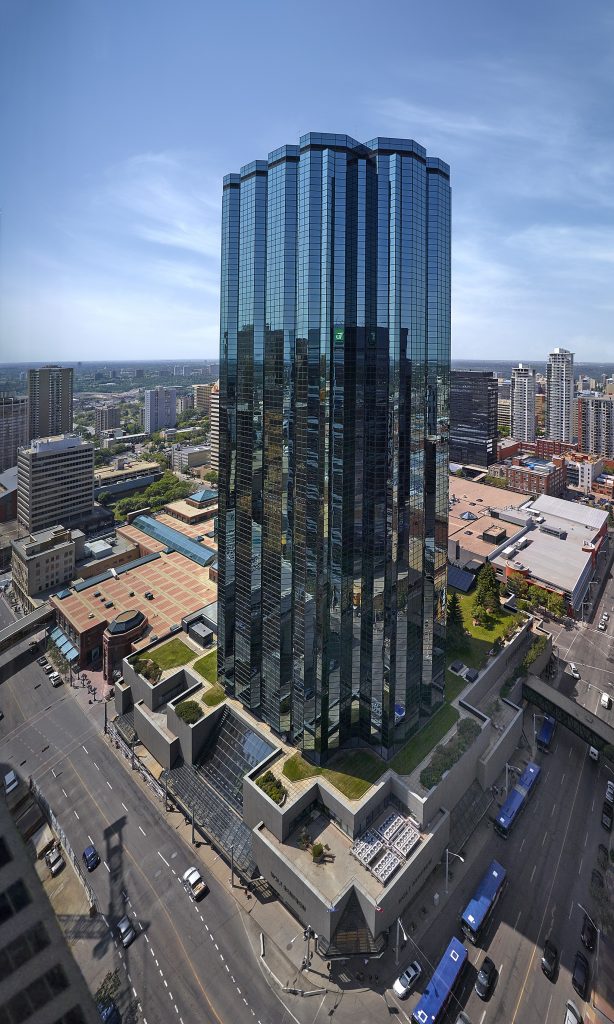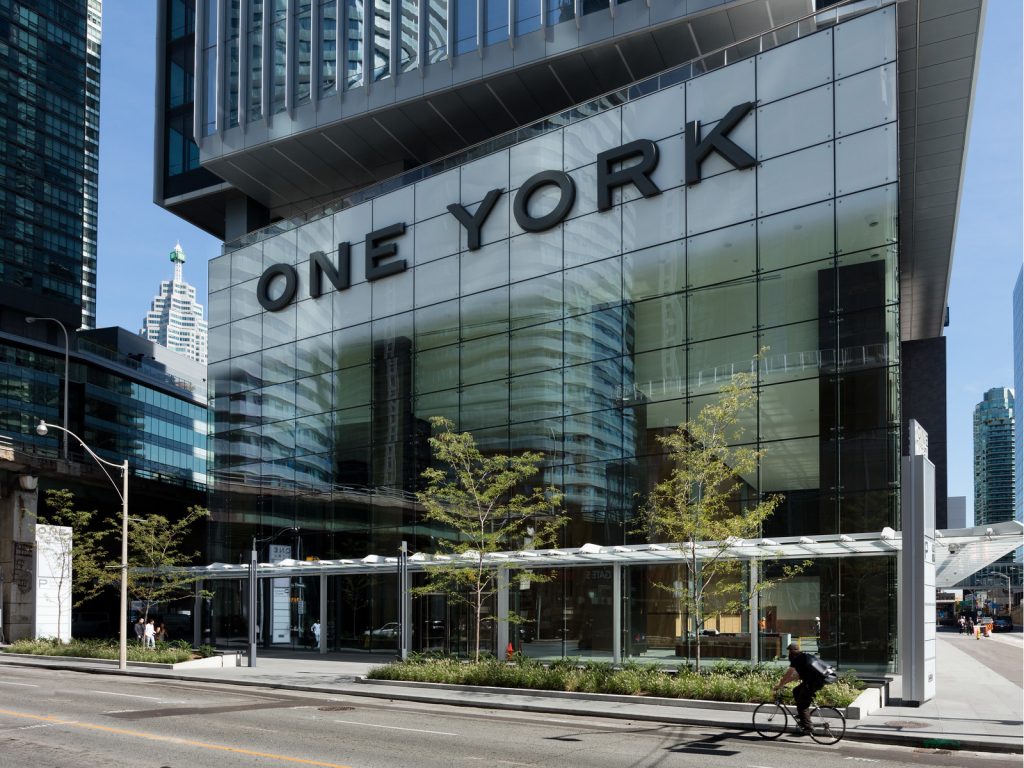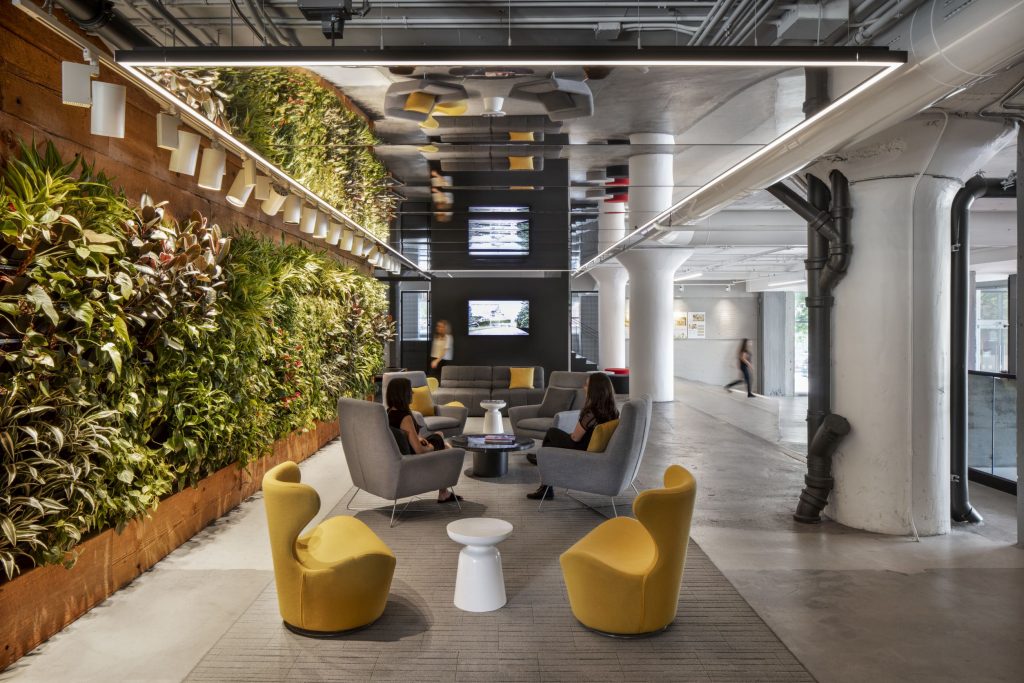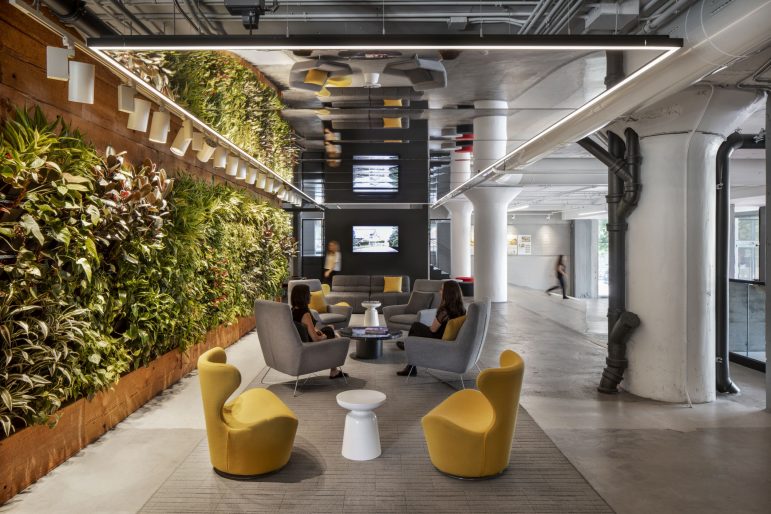Twenty months into the COVID-19 pandemic, the priorities of building management – and of the Canadian public – have greatly evolved. In Fall 2021, as more Canadians continue to return to office buildings in a world that has changed for the long term, workers, tenants, and residents want to know their health and wellness is a primary focus for real estate landlords and facility managers.
The desire of landlords to meet that demand has been reflected in the uptake of the Center for Active Design’s (CfAD) Fitwel® certification, the world’s leading certification system committed to building health for all.
Launched in 2017, Fitwel’s core focus is to ensure that health is a priority in the real estate sector, validated by measurable results supported by scientific research and evidence-based strategies. The certification has a significant and expanding footprint in Canada and beyond. Between 2019 and 2020, its overall global use rose 190 per cent year over year; in Q4 2020, it soared by 640 per cent. Since 2017, CfAD estimates Fitwel has had an impact on more than 1.3 million people through 2,700+ registered projects and 1,000+ projects certified or in review. In Canada, there was 144 per cent growth between 2019 and 2020, a demand being driven largely by tenants.
Zachary Flora, Vice President of Market Growth of Fitwel, says the certification’s “exceptional” growth in Canada reflects the commitment that leading real estate companies, tenants, and design firms have been taking to create healthy and resilient spaces.
“Each year, we see our Canadian partners go above and beyond to implement operation and design changes that prioritizes the health and well-being of the employees and tenants,” continues Flora. “These efforts reflect the belief in the evidence-based research and the measurable ability to transform the office experience. Our Canadian partners are proactively leading the way in emphasizing the importance of healthy buildings and the role they play in prioritizing people, the planet, and building performance.”
Indeed, numerous industry leaders have selected Fitwel as a way of validating their efforts to focus on tenant wellness, including Manulife Investment Management, Menkes Developments, and Lemay Architecture and Design.

Fitwel’s Best in Building Health 2021 award-winning Manulife Place in Edmonton
The verification of choice
Manulife Investment Management recently started working with Fitwel but already has several buildings certified, including Fitwel’s Best in Building Health 2021 award winner Manulife Place in Edmonton, and has secured Fitwel Viral Response Module (VRM) certification with distinction at the entity-level.
“Operating healthy buildings is no longer optional; it’s expected. And for very good reason,” says Manulife Investment Management’s Head of Real Estate Asset Management, Scott Gordon. “Over the last year-and-a-half, landlords have seen the tremendous positive impacts on all of our wellbeing that buildings have when they are operated correctly and healthily.”
Gordon notes the company wanted to highlight the need for healthier spaces, and that’s why the Fitwel certification became a core focus. He cites the program’s “rigorous standards and policies” as a key attraction in providing validation that Manulife Investment Management* is meeting its sustainability commitments and providing the best environment for tenants and visitors.
That view is shared by Menkes Developments, an early adopter of Fitwel and a Legacy Champion of the program. Its 25 York Street facility was the first office building in Canada to achieve the certification, while One York Street won Fitwel’s Best in Building Health award in 2020. “We didn’t want our workplaces to be hindering people in their quest to live a healthier work life,” explains Jon Douglas, Director of Portfolio Services and Sustainability at Menkes. “In fact, we wanted our workplaces to actively help people live a healthier lifestyle by creating opportunities for people. The ultimate goal was to help people be healthier by the end of the day than they were at the start.”
Menkes already had a Healthy Spaces program focusing on wellness, and Fitwel certification was a neat fit as a piece of the puzzle. Typically, landlords and tenants have not necessarily engaged in conversations around health and wellness in the past, but “the robustness of the program being based on science means the conversation makes sense,” says Douglas. Menkes certified all its major assets in 2017-18 and is now in the process of recertifying.
Montreal-based Lemay is another Fitwel Legacy Champion and Best in Building Health award winner and has certified its four main Canadian workplaces in Montreal, Calgary, Toronto, and Quebec City. “We have been working in sustainability for 15 to 20 years and it is so hard to define and measure your own goals out of the blue,” explains Sustainability Strategies Director Hugo Lafrance. “We are big advocates of the need for verification and evidence-based third-party verification to establish a common language, shared goals, and clear targets around health and wellness.”

Menkes’ Fitwel Best in Building Health 2020 award-winning One York Street.
A greater need in the pandemic era
Lafrance notes that architecture and buildings are often seen as static elements but describes them as the best leverage to influence the behaviour of people for the better.
Real estate and facility management companies have embraced that position of power in recent years, and that trend has been accelerated by the COVID-19 pandemic, which has prompted a reevaluation of how buildings interact with their tenants and vice versa. Sustainability measures, carbon reduction, and green building approaches had been key pieces of the puzzle for some time before 2020, but the attention has turned firmly towards true employee and tenant health and wellbeing.
Part of that is the market catching up, opines Lafrance. In Quebec, for example, it’s only comparatively recently that non-essential services have been allowed to go back to the office, so there had not been a huge rush to focus on that side of things. Now, though, it has shifted to become a firm top priority.
Gordon also noted that the real estate industry has been pushed to recognize healthy buildings as a core necessity rather than a nice-to-have throughout the pandemic. This is particularly vital as workers continue to return to offices, some likely with wavering confidence.
“It is positive to see real estate landlords willingly raise their hands and vow to make their buildings the healthiest they can be and to make people feel as safe and comfortable as they can be,” Gordon says.

Lemay’s Fitwel 3-star-rated Phenix property
Reaping the reward
As Lafrance puts it, the beginning and the furthering of the conversation between landlords and tenants around health and wellness “can only be a win-win” and Fitwel’s partners are seeing the appreciation. “Tenants and stakeholders tell us that they feel like we are concerned about them and will work to deliver the best, safest, and healthiest workplaces possible,” he adds.
Health and wellness can be a difficult thing to quantify but, again, this is where the demonstrable evidence-based approach of Fitwel really reaps reward. All three companies report stellar feedback from their tenants on the steps they have taken in line with Fitwel, which include everything from sharing CAMH resources on mental health to making indoor air quality improvements to introducing stair-walking programs and yoga sessions.
Douglas notes that because the certification and the changes it prompted were so practical, it resonated strongly with Menkes’ tenants, particularly the increased focus on the mental health side. That has become more of a critical topic in the second year of the pandemic amid anxiety around the return to the office. Menkes has been trying to understand and manage that nervousness and be sensitive to the mental health toll of all things COVID-19-related. “The feedback was great – tenants and residents wanted to have those conversations and to work with us on that. Tenants are so much more engaged with us, and property managers are bringing further health and wellness program ideas to us now.”
It’s about slowly changing the culture, emphasizes Lafrance. “Creating a more health and wellbeing-driven environment isn’t easy, but it’s doable and those efforts are recognized and appreciated by people.” Fitwel gives real estate landlords knowledge of their projects’ strengths and weaknesses at the time of benchmarking, which helps landlords provide precious feedback to clients and stakeholders and get feedback along the way.
Looking ahead, Gordon notes that in the world of office real estate, landlords must be willing and able to demonstrate that they are taking the steps and making the investments to help improve the health and wellness side.
As such, Lafrance thinks more and more companies will choose to certify with Fitwel. “It’s a clearer way to send a signal to employees and stakeholders that the business has looked at health and wellness throughout the pandemic and is looking to charter a safer way forward.”
*Manulife Investment Management’s property management services are engaged in real estate property management and are not authorized to provide, and do not provide, investment advice or investment advisory services. Additionally, the content of this site is not intended nor should be construed as an offer to buy or sell or a solicitation of an offer to buy or sell any security or to participate in an investment strategy. Additional information about the company, its properties, and its operations can be found at www.manulifeim.com/realestate.






